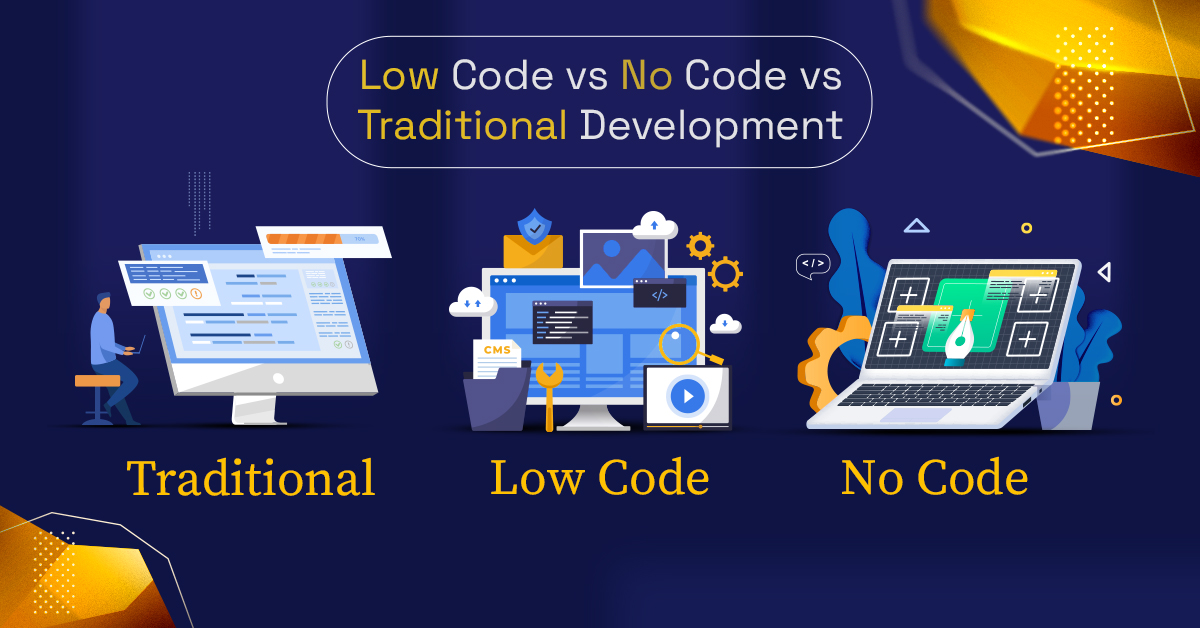No Code, Low Code, or Traditional Way: Which Is Best?
Are you trying to decide between low code, no code, and traditional development? Our comprehensive breakdown of each option will help you make the best decision for your project.
Trending on Indie Hackers


Thanks for writing this article Will. It totally captures the key considerations for choosing the right approach to building an application.
We are working on a code-friendly, low-code admin app builder: https://mui.com/toolpad/
It’s an npm package that supports using your code editor for data fetching, transformation, and other customizations, and a drag-drop interface for building UI fast.
What's your perspective on this hybrid tradeoff?
I think learning coding is important for us, if we want to build something unique and creative, not every task or automation we can done using no code.
yeah, for beginner's no-code is best way to start but they should also learn coding in parallel.
agree.
I think even better when possible is to use the "low-code" solutions that actually generate the codebase.
That way the beginners not only get things done but also see how it's done and then it's gonna be easy to start modifying small bits here and there
Thanks for blog ,
In my opinion with the growing ease of automating and creating codebases and workflows using ChatGpt has made traditional coding more fast as you can directly fit those snippets into your codebase
As compared to NoCode where in you have to manually drag and drop elements, It has suddenly become supper slow due to ChatGPT .
Thanks.
you are right code base generation is the way to go.
Even if say a code generation solution gives you just 70% use cases it's way better than using a no code that gives me 95 % of the use cases.
Code generation gives me 70% , I'm like cool thanks I'll take it from here on manual mode.
No code gives me 95% just to find out 6 months later that for the last 5 % I have to do ton of work or even worse it's simply impossible. Then I'm done with no code and for next 5 years gonna downvote anything no-code related on reddit.
Thanks for the article.
I am a seasoned dev and was looking into trying some of these low/no-code tools. Is there something folks here have experience with?
I think I am looking into something that works without the code but can extend it with code if needed. So possibly some form of plugin architecture? Or are there some approaches other devs used for quick proof of concept kinda things?
@pavelschoffer I am building https://saasbit.saasbeet.com/ in the form whereby basic stuff like user authentication, payment, hosting, landing page is No code. At the same time, the basic application, one can upload their /dist folder to customize the application core. I would love your feedback if you have any. Thanks!
"I think I am looking into something that works without the code but can extend it" this is the best way for developers, "low code" that actually gives me a simple code as i would have written it and then for complex parts I can manual code it .
I'm gathering such solutions, it's in the beginning, more and more people are awakening to this.
Low code and No code in most scenarios lead to brittle systems. If your objective is to create a quick MVP these options could be a saviour.
If you are planning to build a scaled system, you need coders for the intelligence behind data structuring and right technology choices
Low code / no code is convenient if you are not a coder or if you are not using a no-code solution for the core part of your product. Otherwise, go with full code if you are proficient with it.
It depends on the use cases as of now, but IMO as a developer I can now save much time with low code and also get that amount of flexibility to code and apply complex logic.
I am using some low code tools including DronaHQ, which is helping me build some mindblowing apps on top of my APIs.
https://www.dronahq.com/
Depends on the stage and type of product.
If you are a coder then go traditional, if you are not and have a limited budget then you should stay well clear of hiring or outsourcing until you have budget to do so. It's a quick way to lose a small fortune.
To get your initial product (post MVP) out the door - it's no code all the way - the trade off between what you lose technically (which is getting smaller by the day) and what you gain in back end support, speed to delivery, amendments amongst other things is huge.
Then once you have the money coming in, go full code if you really have to :-)
AI will change everything in the next few years, code and no code.
No code isn't as bad as most people think.
The one that gets it done.